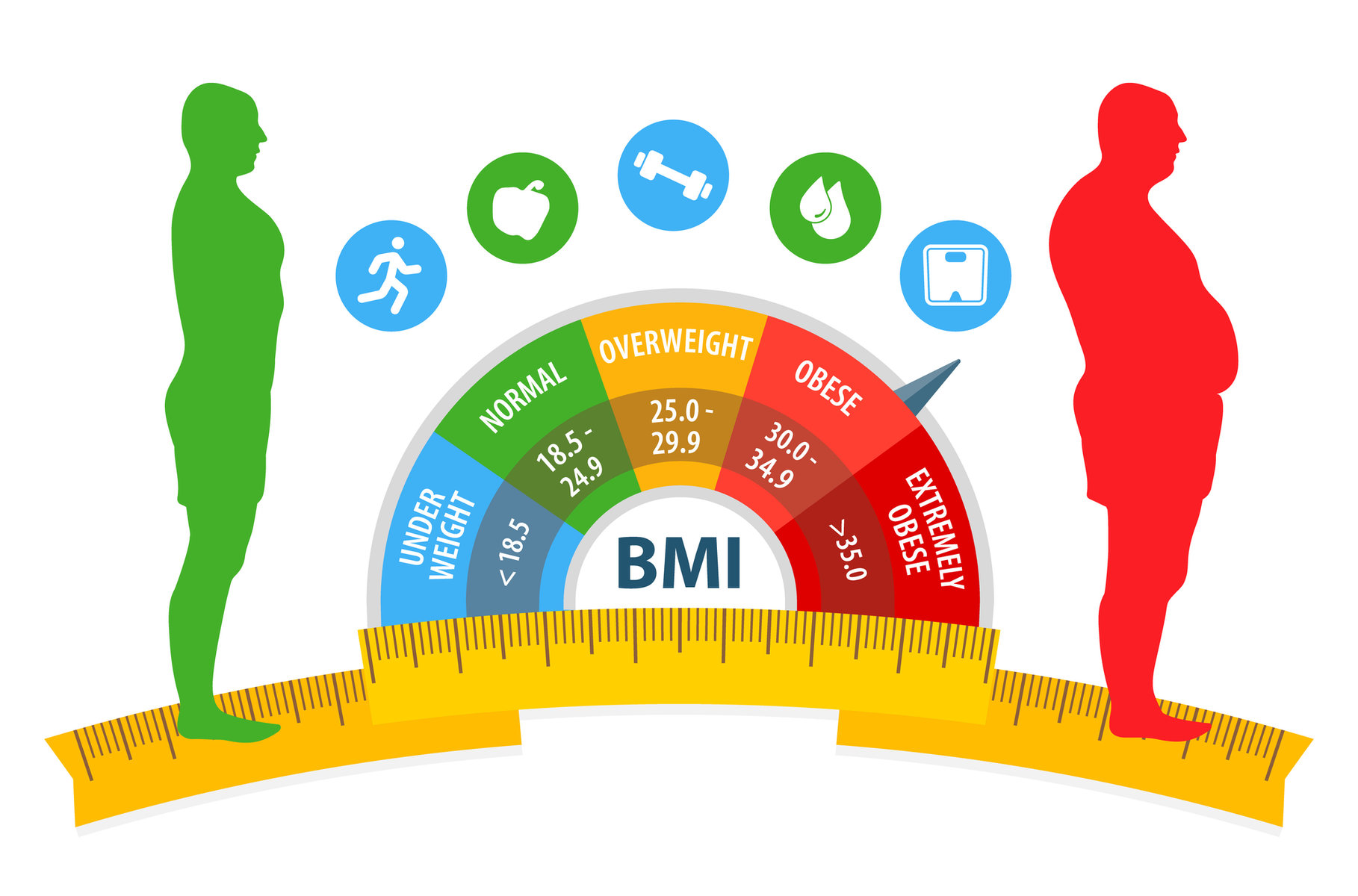
Truth be told, many people believe that once they’ve undergone the knife, maintaining their new physique will be a walk in the park. This is far from accurate.
In fact, without proper fitness and nutrition post-surgery, your tummy tuck results could diminish over time.

BMI is a critical factor to consider when undergoing tummy tuck surgery, as it provides an indication of body fat levels. This number, a ratio calculated by dividing your weight in kilograms by the square height in meters, serves as an important indicator of body fat.
If you’re considering abdominoplasty or any form of plastic surgery, having a healthy BMI, ideally below 30, is highly recommended. But why does this matter?
A healthy BMI can significantly enhance your tummy tuck results. Patients with lower BMIs usually have less visceral fat – deep-seated abdominal fats surrounding internal organs – making it easier for surgeons to achieve optimal outcomes during body contouring surgeries like a tummy tuck.
Beyond aesthetics, though, there are also safety considerations at play here. Higher BMIs are associated with greater risk factors such as poor wound healing and increased chance of infection post-surgery; hence, many surgeons refrain from operating on patients whose BMI exceeds 40 unless medically necessary.

Maintaining a stable weight before and after undergoing abdominoplasty is key if you want those stellar surgical results to last long-term. Significant changes in weight, including pregnancy, can stretch skin and muscles tightened during the procedure, thus compromising its benefits over time.
Imagine gaining significant amounts after your operation due to dietary shifts or pregnancy; what happens? The newly repaired abdominal wall could potentially get stretched out again, thereby negating some initial gains achieved through this transformative process.
To prevent unwanted fluctuations post-tummy-tuck procedure, one must adopt lifestyle modifications, including regular exercise routines and balanced nutrition habits; essentially, living healthily becomes paramount if you want long-lasting satisfaction from having undergone abdominoplasty surgery.
In the realm of cosmetic surgery, tummy tuck procedures are often misunderstood. One widespread myth is that a tummy tuck, known as abdominoplasty surgery, is an instant weight loss solution.
The truth? A tummy tuck isn’t designed for massive weight loss but rather to enhance body shape by eliminating loose skin and tightening stretched abdominal muscles after significant weight reduction or pregnancy. While maintaining a healthy lifestyle with regular exercise and a balanced diet plays a crucial role in overall health and preserving post-surgery results. However, they may not effectively address specific aesthetic concerns like excess fat or sagging skin.
An equally prevalent misconception revolves around who makes the perfect candidate for this type of plastic surgery. Contrary to popular belief that only women can benefit from this procedure, both genders can experience improved body contouring through a well-executed tummmy tucking operation.
Typically speaking, ideal candidates should be at their target healthy BMI (Body Mass Index), ensuring minimal future fluctuations which could compromise surgical outcomes if substantial weight gain occurs post-operation, stretching out tightened areas again.
Apart from being within their optimal BMI range, potential patients need realistic expectations regarding what improvements are possible aesthetically via such surgeries – something your surgeon will clarify during consultation based on individual circumstances.
Note: It’s always advisable to have thorough discussions with your plastic surgeon before deciding whether any form of cosmetic treatment aligns with personal health goals.

When maximizing the benefits of a tummy tuck procedure, nutrition is indispensable. A balanced diet not only aids recovery after abdominoplasty surgery but also helps maintain your body shape long-term.
The right nutrients can support wound healing and immune function while reducing inflammation. This is crucial for a smooth recovery process and enhanced surgical outcomes. Moreover, maintaining a healthy weight post-surgery through proper nutrition can help sustain the aesthetic benefits of your procedure.
A nutrient-rich diet should be part of every patient’s lifestyle before and after undergoing tummy tuck surgery. Including nutrient-dense foods such as lean proteins and vitamin C-rich fruits in your diet can help promote healing during abdominoplasty recovery.
Lean proteins such as chicken breast or tofu aid tissue repair and muscle growth, which are essential during the abdominoplasty recovery period. Fruits like berries or oranges provide vital vitamin C necessary for boosting collagen production – a key element contributing towards skin elasticity & wound healing processes. Green leafy vegetables packed with iron play a significant role in red blood cell production, aiding oxygen supply throughout the human system during any major operation, including plastic surgeries like abdominoplasties.
Certain food items might hinder your progress towards complete recovery following cosmetic procedures and contribute towards unwanted weight gain, thus impacting longevity achieved from these treatments adversely too. It’s therefore important to make conscious choices about what we consume pre- and post-operation times both.
Sugary drinks & snacks, processed meats, and refined grains all fall under the category termed ‘unhealthy’ food options, potentially leading one down a path filled with unnecessary calories, hence best avoided if you wish to enjoy prolonged positive effects from this type of body contouring treatment. Excessive alcohol consumption around the time frame when medical operations take place could delay normal healing mechanisms within our bodies so its recommended avoiding the same until full restoration of health has been accomplished.
Mayo Clinic offers detailed insights on why avoiding alcohol consumption during surgery benefits patients. By making informed decisions regarding dietary habits, we significantly enhance chances at enjoying extended periods of satisfaction following cosmetic treatments, ensuring overall happiness levels remain high over longer durations too.
So, you’ve had your tummy tuck surgery and are thrilled with the results. But how do you ensure these fantastic changes stick around for good? The answer lies within a healthy lifestyle that includes regular exercise. Patience is essential to ensure that the results of a tummy tuck are maintained in the long term. Jumping back into strenuous workouts too soon could jeopardize those hard-earned tummy tuck results.
We all know walking longer distances can be beneficial after any surgical procedure – but why exactly is this so?
This simple activity lays an excellent foundation as you gradually build up toward more intensive exercises.
If swimming or cycling tickles your fancy once fully healed from surgery, go ahead and dive right in (pun intended.). These low-impact activities provide cardiovascular benefits without straining the abdominal muscles, perfect for maintaining body shape post-surgery.
Pilates and yoga might seem challenging at first glance but don’t let that deter you. They focus on core strength, which is essential to sustaining long-term abdominoplasty outcomes.
Achieving optimal fitness levels following a significant weight loss transformation, such as a tummy tuck, requires careful planning. Remember always to listen to your body during each workout session. If anything feels off or uncomfortable beyond typical muscle soreness associated with new routines, it’s time to take things easy.
Your plastic surgeon will guide you when heavy lifting or high-intensity workouts should resume, typically about six weeks post-op, depending on individual recovery progress.
After a tummy tuck procedure, the journey to enhancing your appearance doesn’t stop. To maintain that new body shape and ensure long-lasting results from this transformative plastic surgery, you need to commit to a healthy lifestyle.
The first step towards maintaining those impressive abdominoplasty recovery outcomes is achieving and sustaining a healthy weight. Any rapid changes in your body mass index can lead to stretching of skin and abdominal muscles which could undermine the benefits of your surgery.
Rather than falling for quick fixes like fad diets that often result in rebound weight gain due their restrictive nature, opt for gradual changes aimed at promoting overall health (Mayo Clinic). This includes incorporating more whole foods into your diet while reducing processed ones as well as regular physical activity – both crucial elements when it comes avoiding unwanted post-surgery weight gain or significant loss after massive weight loss procedures.
This not only helps keep excess fat at bay but also tones up those newly tightened muscles ensuring optimal post-tummy tuck contouring effects over time.
Regular exercise plays an equally important role by helping tone & strengthen abdominal muscles further contributing towards maintaining desired surgical outcome. However, remember all exercises aren’t suitable immediately following abdominoplasty recovery; starting with walking longer distances might be a safe bet before gradually introducing strenuous activities such as strength training under professional guidance (National Institutes Health).
Nutrition is vital too. It supports tissue repair, immune function, among other processes essential to the healing process, thus influencing the longevity of results achieved through Moein Surgical Arts’ comprehensive approach to patient care. Incorporate nutrient-rich foods, lean proteins, muscle repair fruits, vegetables rich in vitamins C and E, and aid wound healing omega-3 fatty acids found in fish and nuts known for their anti-inflammatory properties, etc., into your daily meals. Meanwhile, avoid food items high in sugar and unhealthy fats that contribute to potential regain lost during the initial phase of losing excessive pounds prior to the operation MedlinePlus.
Your relationship with your surgeon doesn’t end once you leave the operating room; they’re there even after, making sure everything continues smoothly. These follow-up visits allow them to monitor progress and adjust any concerns if needed, protecting the longevity of the surgical outcome. If considering additional procedures like breast augmentation or liposuction, discuss the timeline and potential risks involved in appointments to ensure the safety and satisfaction of your aesthetic goals are achieved.
In essence, improving your appearance doesn’t just stop at a successful operation; it extends beyond, embracing a balanced diet, regular fitness routine, and careful monitoring by health professionals dedicated to serving your best interests every step of the way. The end objective isn’t only to appear attractive, but also to feel great.
To optimize tummy tuck results, maintain a stable weight through balanced nutrition and regular exercise. Avoid significant weight fluctuations and adhere to your surgeon’s post-operative care instructions.
Yes, incorporating low-impact exercises into your routine after recovery can help sustain the results of a tummy tuck by keeping off excess fat and toning abdominal muscles.
Mild forms of exercise like walking can aid in reducing post-surgery swelling. However, it’s crucial to wait for full recovery before resuming strenuous workouts.
Dietary protein supports wound healing and immune function while reducing inflammation, making it vital for optimal recovery following abdominoplasty surgery.
When it comes to tummy tucks, your Body Mass Index matters.
Maintaining a stable weight is key for optimal results.
Remember, this procedure isn’t a magic solution for weight loss or just for women.
The Role of Fitness and Nutrition in Enhancing Tummy Tuck Results can’t be overstated.
A balanced diet rich in essential nutrients supports recovery and enhances surgical outcomes.
Certain foods might hinder healing or contribute to post-surgery weight gain – avoid them!
Fitness plays its part too by helping you keep off excess fat and tone your abdominal muscles after surgery.
But don’t rush back into strenuous workouts – give yourself time to recover fully first!
In the long run, sustaining your new physique requires commitment: Regular physical activity, eating nutritiously, and visiting your cosmetic surgeon regularly are all essential for sustaining the outcomes of a tummy tuck.
If you’re ready to transform your body through cosmetic surgery while embracing healthier lifestyle choices, Moein Surgical Arts is here to guide you every step of the way. Click here now let’s get started on enhancing those tummy tuck results together!